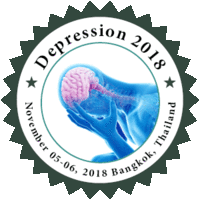
Maria Radziwoń-Zaleska
Department of Psychiatry, Medical University of Warsaw, Poland
Title: Therapeutic drug monitoring of magnesium–augmented therapy
Biography
Biography: Maria Radziwoń-Zaleska
Abstract
This study was partially financed from a grant from the National Science Center [Narodowe Centrum Nauki] (NCN2012/07/B/NZ7/04375) and statutory founds from Medical University of Warsaw.
Summary:
- Therapeutic drug monitoring (TDM), which uses clinical pharmacokinetic data, helps individualize and optimize medical treatment.
- The aim of this study was to assess the efficacy and safety of antidepressant therapy augmented with magnesium ions.
- The research was conducted in the Department of Psychiatry, Medical University of Warsaw. Thirty-seven patients receiving fluoxetine therapy due to an earlier depressive episode were included in this double-blind study, involving antidepressant treatment with the addition of either magnesium ions or placebo.
- During an 8-week follow-up, the patients’ clinical status was assessed with psychometric scales, their blood fluoxetine and magnesium levels were monitored, and pharmaco-EEG was conducted. The obtained results were analyzed.
- The magnesium and placebo groups demonstrated no significant differences in terms of treatment efficacy or safety at any stages of therapy. Moreover, there were no statistically significant differences in pharmaco-EEG profiles between the two groups.
- Nonetheless, a multivariate statistical analysis of the entire study group showed lower baseline Hamilton Depression Rating Scale (HDRS) scores, female gender, smoking, and treatment augmentation with magnesium to be factors increasing the odds of effective treatment. The factors that increased the odds of remission were: lower baseline HDRS scores, shorter history of disease, the presence of antidepressant-induced changes in the pharmaco-EEG profile at 6 hours after treatment, and the fact of receiving treatment augmented with magnesium ions.

